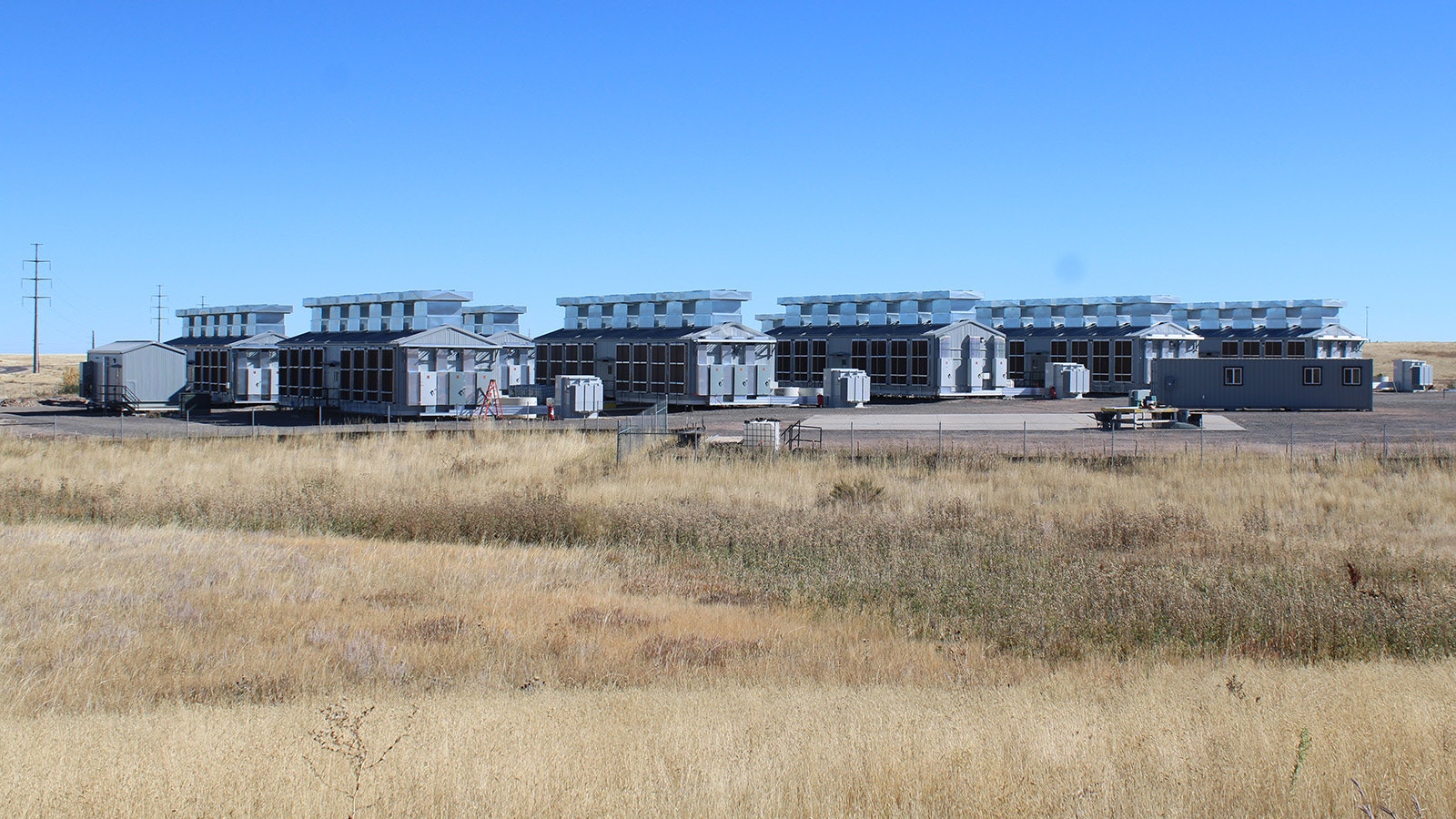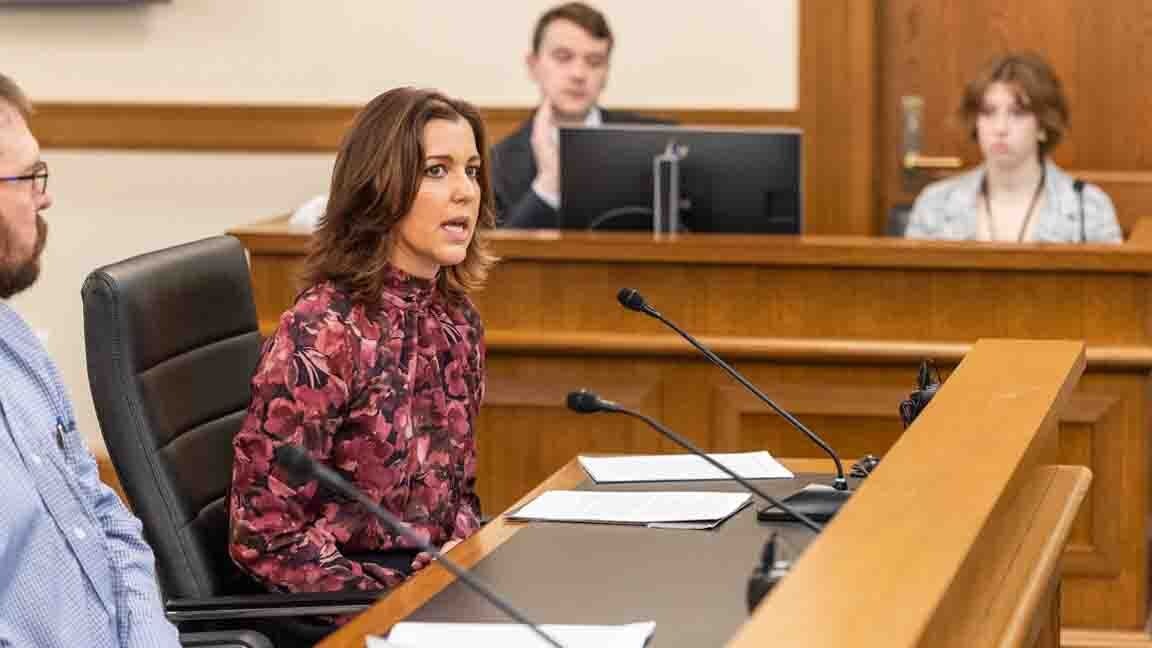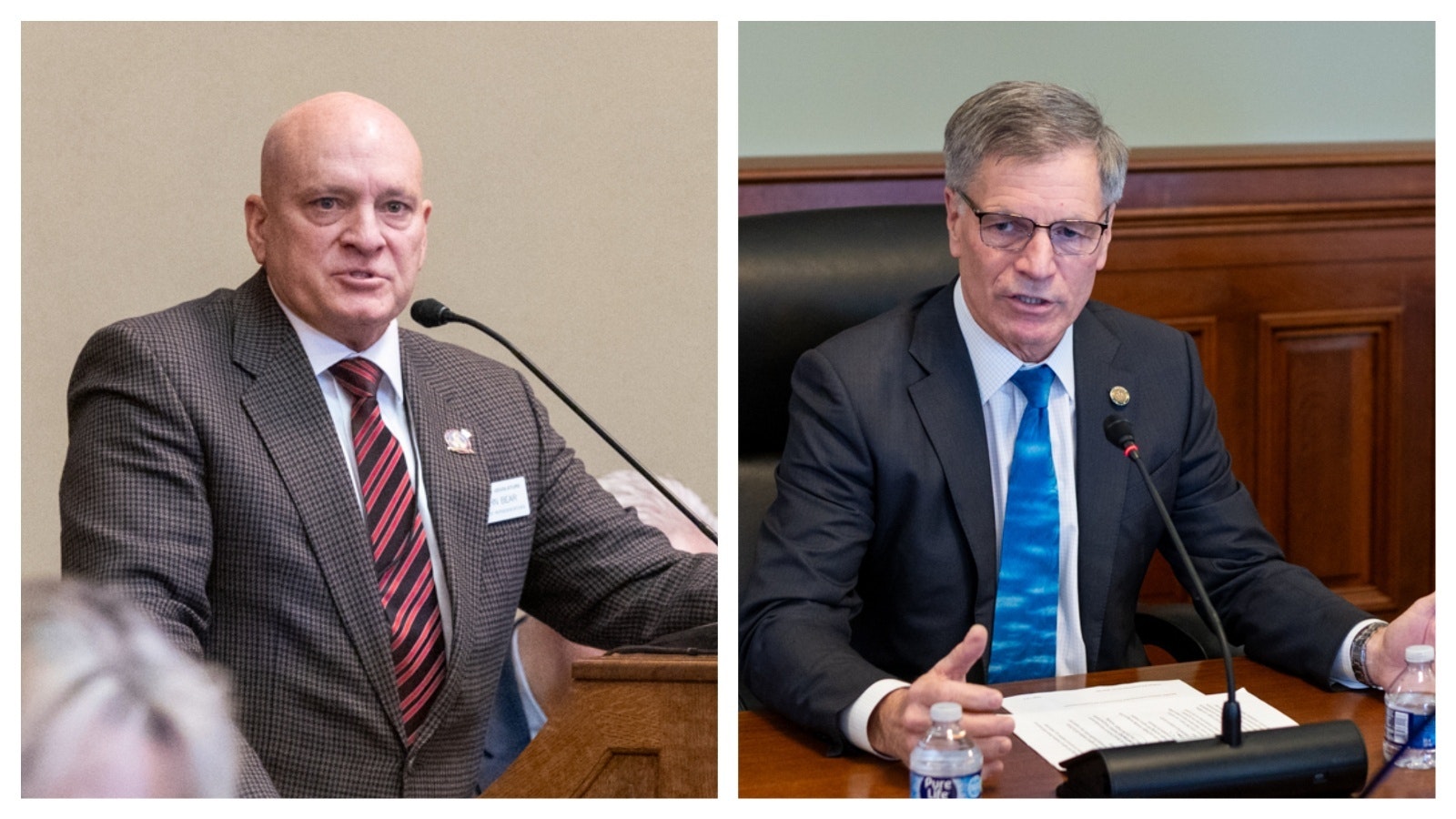A bill that will prohibit the transfer of property near critical infrastructure to foreign adversaries is moving out of committee with a unanimous vote from Senate Appropriations.
Senate File 76 directs the Wyoming Office of Homeland Security to review and investigate property transfers near critical infrastructure to ensure that none are transferred to prohibited foreign parties.
Wyoming Office of Homeland Security Director Lynn Budd told lawmakers that with more than a million real estate transactions happening in Wyoming each year, the task is likely to require more personnel than what the bill has outlined.
“We do not have the capacity to create this program at this point and time,” she said during her testimony. “And while the bill does give us two additional folks, in looking at all of the different tasks that are part of this bill, we don’t believe we can do that with just two people.”
Budd estimated her office will need at least five people for what the legislature envisions.
“I would not hire five people right off the bat,” she added. “I would be looking first at the expertise that we would need. But this will require the development of a pretty complicated system to track the conveyances, which we will already be doing, but also, looking at the percentage of foreign beneficiary ownership, which is also a very hard unknown, because we don’t have that information available to us. So how we obtain that is going to be huge.”
Already Hip Deep In New Procedures
Budd also told lawmakers her office is working diligently on setting up brand-new procedures for the measures passed last year that directed her office to identify critical infrastructure zones and track conveyances in them, to determine if any foreign investments raise concerns.
There are 16 different sectors of critical infrastructure, Budd said, but, for now, her office is focused on what she called “lifeline” sectors — energy, communications, water and wastewater.
“Probably every highway, every pipeline, everything could be considered critical infrastructure in the state,” she said. “But it’s about context.”
Budd said her office is looking at infrastructure that’s critical to immediate survival or protection of citizens.
Through conversations with county clerks in Wyoming, Budd has concluded that the information identifying critical infrastructure should instead be housed on a state server, because the information is extremely sensitive.
“If (the information) was put into the hands of someone with nefarious purposes it could be very handy for them to have,” she said. “So that is one reason to try and reverse the flow of this data. We will keep it on a secure server in our office, so it doesn’t have an opportunity to become compromised.”
A bill will be forthcoming, House Bill 97, to iron out some of those changes, Budd said.
“No matter which way it goes, we’ll be looking for a software solution to compare those zones with actual conveyances,” she said. “Because they are parcel by parcel. There’s approximately a million different transactions that happen in a year in Wyoming, so the development of that ability, to compare those critical infrastructure sites along with their conveyances, is a task that’s probably better suited to a state office, versus the county clerk’s offices having to develop that capacity at every office.”
Budd told lawmakers she agrees that the matter is a national security issue, but added it is also important to protect and support not only Wyomingites, but people in other states that Wyoming serves.
“Many different states rely on us for that energy production,” she said. “So, I think it’s incumbent upon us to protect that infrastructure and do everything we can to make sure that it is protected.”
The F.E. Warren Air Force Base in Cheyenne is a “unique” situation, she added, but she still thinks Wyoming should do whatever it can to protect “that critical infrastructure, as well as the military infrastructure.”
However, she said Wyoming’s Office of Homeland Security doesn’t have any communication with the Committee on Foreign Investment (CFIUS), and in fact, did not know of their investigation into the Chinese-owned cryptocurrency business that had set up shop near the base in 2022. President Joe Biden ordered the business to close and sell out last year.
“So that part of the bill which talks about that, (and says) that we should not be moving forward with an investigation if CFIUS has an ongoing investigation, would be very hard if not impossible for us to know,” she said. “We don’t have an information flow that would allow us to know whether or not there’s a current action going on with CFIUS.”
There’s A List
The way Wyoming presently handles beneficial owners could be a stumbling block for the bill’s intent.
Sen. Darin Smith, R-Cheyenne, asked Budd whether the system she’s setting up would be able to red flag a hypothetical business owned by someone from a hostile country that had set up near something sensitive like a dam, if their name was something like “Americans Are Us.”
Budd said she doesn’t believe that problem can be solved by what she’s setting up.
“That data, at this moment in time, does not exist,” she said. “It would help with that if (there was) identification of beneficial ownership. But I think that it’s probably going to be more complicated than even that.”
Budd said her office will work closely with partners like the Division of Criminal Investigation, the FBI, and others gathering such intelligence, to the extent possible.
“There are specific companies that are known to the federal government,” she said. “It’s on a published list of companies of concern. So, we’ll be looking at any data we can find to try and evaluate whether or not this is a purchase where we have concern.”
Preventing Crossover To Good Actors
There was scant public testimony on the bill outside the discussion with Budd, but Wyoming Mining Association Executive Director Travis Deti was among those speaking.
Deti thanked the Senate Appropriations Committee for narrowing the language so that it won’t reel in some of the state’s existing foreign investors, who he characterized as good partners for the Cowboy State.
“I just wanted to thank the committee for looking at that, as well as other members and the Secretary of State’s office, in working with us to come up with workable language,” he said. “So that when you cast these bills out there, the net is not too broad, so that when you’re going after China and when you’re going after Russia, you don’t sweep up Australia.”
Deti said Wyoming has many foreign investors who have been operating in Wyoming for quite some time who are “good actors.”
“We want to keep them here creating jobs and generating revenue for the state,” he said.
Roll Call
The bill passed unanimously with little discussion after public testimony concluded.
The committee members votingon the bill were: Sens. Ogden Driskill, R-Devils Tower, Mike Gierau, D-Jackson, Dan Laursen, R-Powell, Darin Smith, R-Cheyenne, and Tim Salazar, R-Riverton, the committee’s chairman.
Renée Jean can be reached at renee@cowboystatedaily.com.







